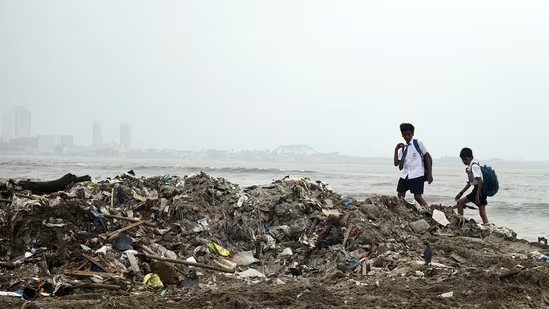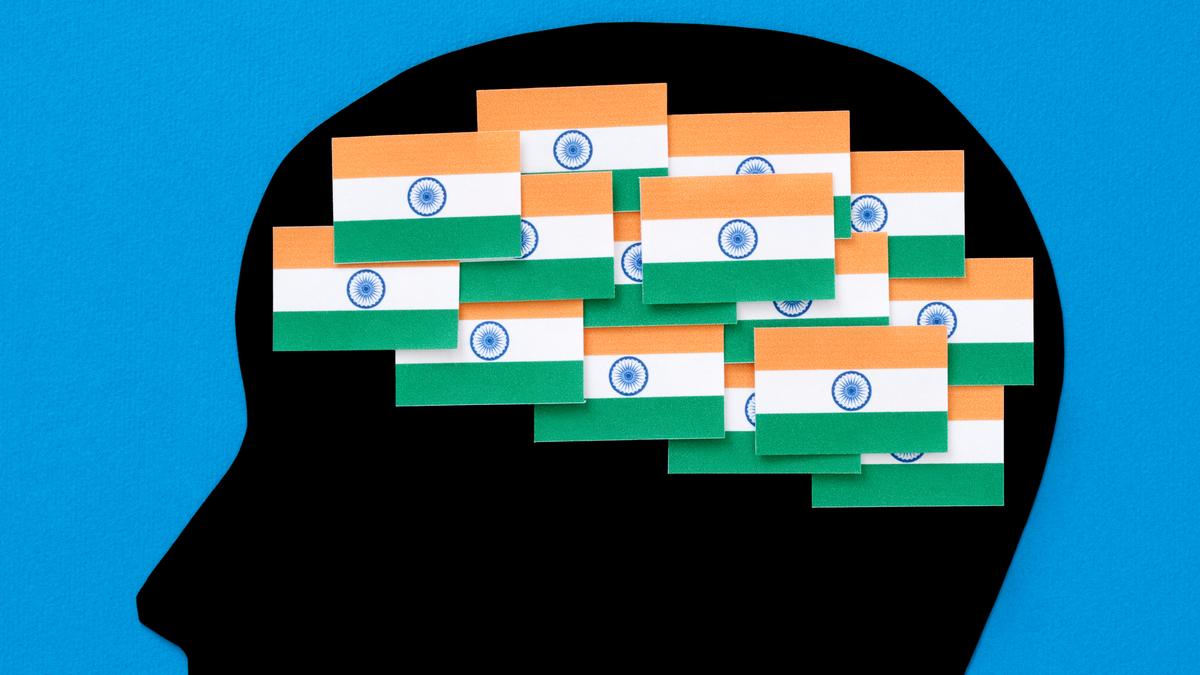- Courses
- GS Full Course 1 Year
- GS Full Course 2 Year
- GS Full Course 3 Year
- GS Full Course Till Selection
- Answer Alpha: Mains 2025 Mentorship
- MEP (Mains Enrichment Programme) Data, Facts
- Essay Target – 150+ Marks
- Online Program
- GS Recorded Course
- Polity
- Geography
- Economy
- Ancient, Medieval and Art & Culture AMAC
- Modern India, Post Independence & World History
- Environment
- Governance
- Science & Technology
- International Relations and Internal Security
- Disaster Management
- Ethics
- NCERT Current Affairs
- Indian Society and Social Issue
- NCERT- Science and Technology
- NCERT - Geography
- NCERT - Ancient History
- NCERT- World History
- NCERT Modern History
- CSAT
- 5 LAYERED ARJUNA Mentorship
- Public Administration Optional
- ABOUT US
- OUR TOPPERS
- TEST SERIES
- FREE STUDY MATERIAL
- VIDEOS
- CONTACT US
Plastics and Health: A Growing Crisis in India
Plastics and Health: A Growing Crisis in India

Why in the News?
- Plastics are now being found inside the human body, including in blood, lungs, heart, placenta, and even reproductive organs like ovaries and testicles.
- A recent 2024 study in India showed that 89% of people tested had microplastics in their blood.
- These plastics carry harmful chemicals that can affect hormones, fertility, and increase the risk of cancer. With India producing the highest amount of plastic waste in the world, this growing health crisis has raised serious concerns and is making headlines.
What are Microplastics?
- Microplastics are very small plastic pieces that are less than 5 millimeters in size.
- They come from larger plastic items that break down over time or are made small on purpose.
- Types of Microplastics
- Primary microplastics
- These are tiny plastics made for specific products like:
- Face scrubs
- Toothpaste
- Industrial cleaners
- These are tiny plastics made for specific products like:
- Secondary microplastics
- These form when larger plastic items (like bags, bottles, or clothes) break down in the environment due to sunlight, wind, and water.
- Primary microplastics
How Microplastics Enter Our Body?
- Through food (like seafood and salt)
- Through drinking water
- Through the air we breathe
What are the Impacts of Microplastics on Human Health?
- These tiny plastic particles carry harmful chemicals that affect many systems in the body.
- Hormonal Disruption (Endocrine Disruption):
- Microplastics contain harmful chemicals called Endocrine-Disrupting Chemicals (EDCs) like BPA, phthalates, and PFAS.
These chemicals:- Mimic or block natural hormones such as estrogen, testosterone, thyroid hormones, and cortisol.
- Cause hormone imbalance, affecting growth, development, and metabolism.
- Microplastics contain harmful chemicals called Endocrine-Disrupting Chemicals (EDCs) like BPA, phthalates, and PFAS.
- Reproductive Problems:
- In Men:
- Lower sperm count
- Poor sperm movement and shape
- Damaged testicular tissue
- Reduced testosterone
- Higher levels of luteinizing hormone (LH), indicating imbalance
- In Women:
- Microplastics found in egg fluid (follicular fluid)
- Lower egg quality
- Irregular menstrual cycles
- Low estrogen (estradiol) levels
- Higher chances of PCOS, endometriosis, and miscarriages
- In Men:
- Cancer Risk:
- BPA and phthalates are linked to breast, prostate, uterine, and testicular cancers.
- Indian women with high levels of DEHP in their urine have nearly three times the risk of breast cancer.
- Some chemicals in plastics are labeled “probable carcinogens” by international agencies.
- Metabolic and Lifestyle Diseases:
- Plastic chemicals act like cortisol, the stress hormone.
- They disturb insulin function, leading to:
- Weight gain
- Type 2 diabetes
- Metabolic syndrome
- Heart and Thyroid Disorders:
- PFAS chemicals are linked to:
- High blood pressure Heart disease
- Thyroid problems
- PFAS chemicals are linked to:
- Effects on Children and Pregnant Women:
- Early puberty
- Learning problems
- Obesity
- Breathing issues
- Harm to brain development and organ growth in unborn babies
What are the Challenges and Way Forward?
|
Challenges |
Way Forward |
|
1. Microplastics and harmful chemicals are entering the human body unnoticed. |
Start biomonitoring programs to test blood, urine, and breast milk for chemical exposure. |
|
2. Poor enforcement of Plastic Waste Management Rules in India. |
Strictly implement and update laws to control plastic use and waste. |
|
3. Lack of awareness about plastic-related health risks. |
Educate people about the dangers of heating food in plastic and using plastic containers. |
|
4. Unsafe plastic use in daily items like bottles, toys, and food wrappers. |
Promote safer alternatives like glass, stainless steel, and non-toxic materials. |
|
5. No filters in water treatment plants to remove microplastics. |
Upgrade water treatment systems with microplastic filters. |
|
6. Rising health issues like cancer, infertility, and hormonal diseases. |
Conduct long-term health studies to track the impact of plastic chemicals. |
|
7. Poor communities are more exposed due to waste burning and informal recycling. |
Protect vulnerable groups and improve working conditions in waste management. |
Conclusion
The plastic problem is not just about pollution anymore, it is now a serious health emergency. The presence of microplastics and toxic chemicals in our bodies calls for urgent action. India must act quickly to protect the health of its people, especially the most vulnerable. This issue must be treated with the same urgency as any other national health crisis.
|
Ensure IAS Mains Question Q. Plastics have made modern life convenient, but they pose an invisible and long-term threat to human health through microplastic pollution and chemical exposure. Discuss the health and environmental implications of microplastics in India. What steps can be taken to address this emerging crisis? (250 words) |
|
Ensure IAS Prelim MCQ: Q.1 Consider the following statements regarding microplastics:
Which of the above statements are correct? A. 1 and 4 only Answer: B Explanation: Statement 1 is correct: Microplastics are defined as plastic particles smaller than 5mm. Statement 2 is correct: Studies have found microplastics in various parts of the human body. Statement 3 is correct: Phthalates and BPA are known EDCs found in plastic products. Statement 4 is incorrect: India has not banned all forms of microplastics; regulations exist but are partial and enforcement is weak. |
|
Also Read |
|
| Public Administration Optional | |
| UPSC Monthly Magazine | Question Answer Practice For UPSC |




